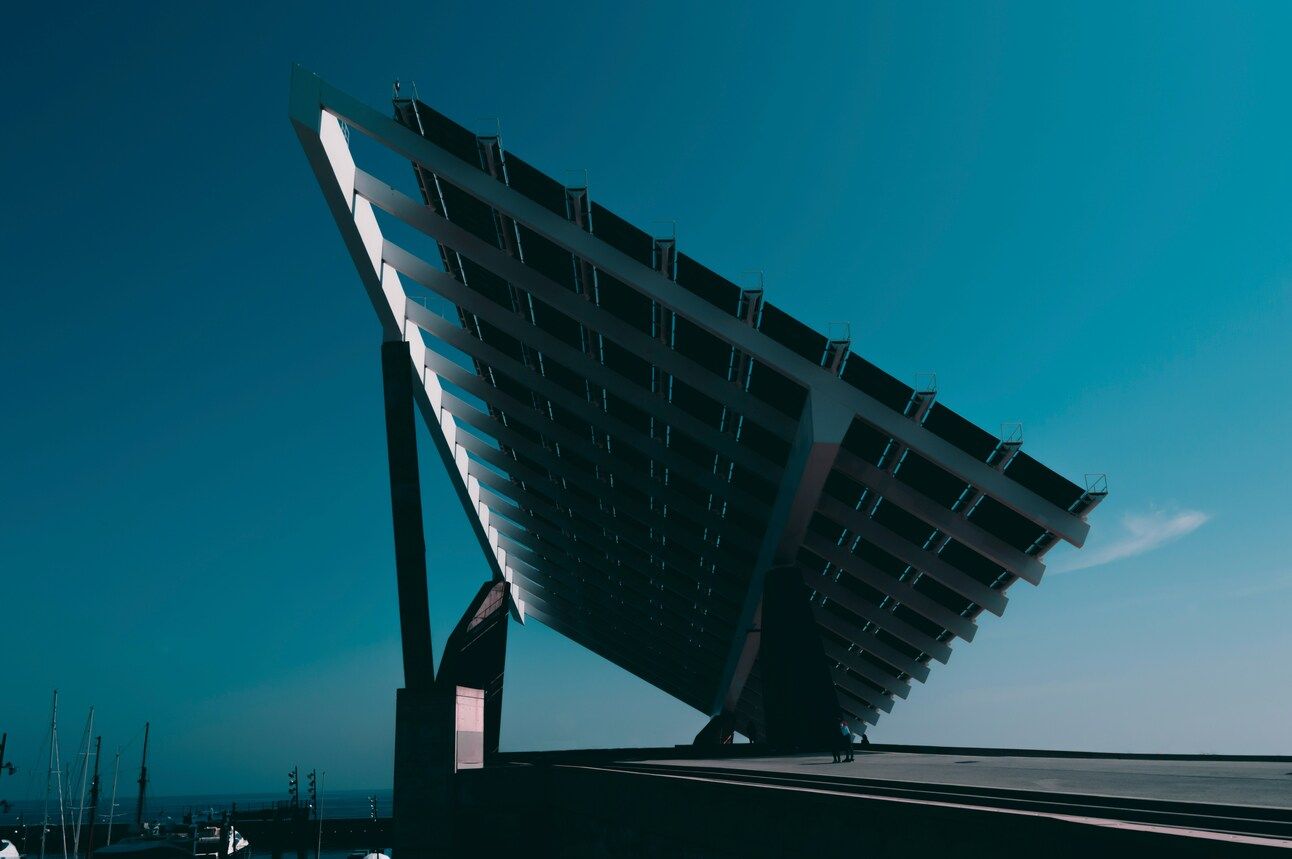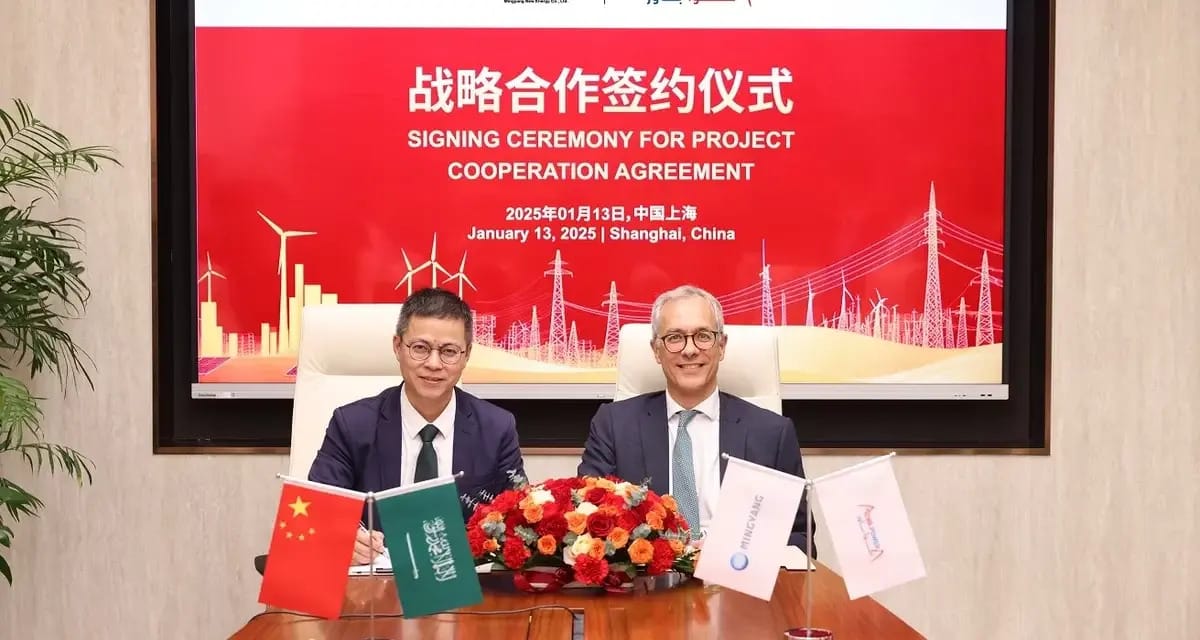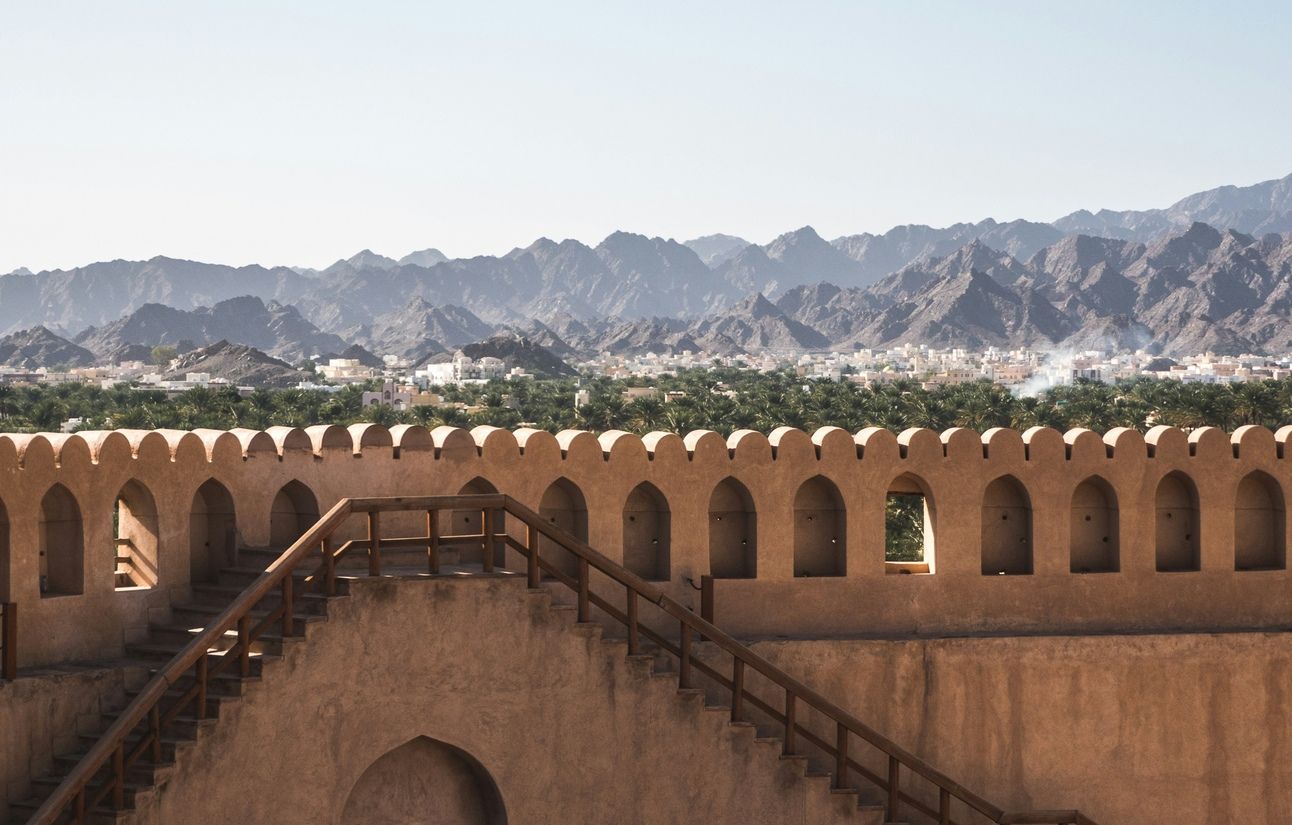- Soma Mater's Newsletter
- Posts
- SOMA Newsletter
SOMA Newsletter

Welcome to the SOMA MATER weekly newsletter.
At SOMA MATER, we specialize in delivering comprehensive research and advisory services with a focus on Food & Water Security and Net Zero Transition in the MENA Region. In order to support our subscribing clients in navigating these topics and understanding the regional narrative, we produce monthly Food and Water Security and Net Zero Transition Intelligence Reports, along with our in-depth analysis and insights.
This weekly newsletter highlights the top 3 stories from the past week in Food and Water Security and Net Zero transition, along with SOMA MATER's analysis and perspective.
What is Masdar's most recent renewable energy project in Abu Dhabi and what does it mean for renewables energy growth in the region?
How is ACWA Power expanding its renewable energy presence in China?
What is Oman's most recent initiative to help achieve its 2050 net-zero emissions target?
Sustainably yours,
The SOMA team
Sun's Out, Batteries Full: Abu Dhabi's Solar Power Gets Supersized
#NetZeroTransition

Masdar revealed plans to develop the world's largest combined solar and battery energy storage (BESS) system in Abu Dhabi. The facility, launched in partnership with the Emirates Water and Electricity Company, will deliver 1 gigawatt of uninterrupted clean power by combining 5 GW of solar capacity with 19 GWh of storage.
The project is expected to cost around $6 billion project and will enable 24-hour dispatch of clean power, making it a milestone in renewable energy development. This approach directly addresses one of the biggest challenges in renewable energy - intermittency - making it a viable option for baseload power generation. Intermittency refers to renewable energy's inability to produce power consistently throughout the day. While it has historically constrained renewable energy growth, the use of high-capacity batteries that can store large amounts of power creates the opportunity to change that.
Set to begin operations by 2027, this project comes at a crucial time as the UAE braces itself for growing energy demands of artificial intelligence applications, which could increase energy consumption by 250% by 2050. As mentioned in previous newsletters, projections show the electricity needed to power AI-related data centers is expected to grow between 8-23% annually through 2026, with AI use projected to account for 0.24% of global electricity demand.
SOMA’s Perspective:
There is a shift in how we are approaching renewable energy integration, particularly in addressing the challenge of intermittency. We are at a crossroads where renewable energy is poised to become increasingly reliable and capable of meeting baseload power demands. As we progress through 2025, SOMA expects battery energy storage to become an increasingly central topic in renewable energy discussions.
Sources:
Winds of Change: ACWA Power's Great Wall of Renewable Energy
#NetZeroTransition

ACWA Power is Saudi Arabia's leading energy transition company and the world's largest private water desalination company. It has announced its strategic entry into China's renewable energy market. The company has secured investment agreements worth $312 million for over 1GW of projects across multiple provinces, marking a significant milestone in its 2023 China Strategy.
The expansion includes two key partnerships: first, a collaboration with Sungrow Renewables to develop a 132 MW solar photovoltaic portfolio in Guangdong province, and second, an agreement with Mingyang Smart Energy Group to develop wind energy assets starting with a 200 MW portfolio. ACWA Power has set ambitious growth targets, aiming to triple its assets under management to approximately $250 billion globally by 2030. This expansion into China's renewable energy sector represents a crucial step toward achieving this goal.
Chinese companies are leading the energy transition both domestically and internationally, with China hosting Tongwei Solar, the world's largest solar panel manufacturer. This partnership is significant because as the US and EU are working to reduce their dependence on Chinese renewable products, countries in the Global South and in the Middle East, including Saudi Arabia, continue to maintain strong partnerships with Chinese firms in their energy transition journey.
SOMA’s Perspective:
As Chinese companies continue to dominate the global renewable energy supply chain, their presence in the Middle East through partnerships and investments can reshape regional dynamics. Now we see countries like Saudi Arabia expanding into China. This is significant given the ongoing efforts by Western nations to reduce dependence on Chinese renewable products. The timing of these developments, coinciding with the recent US elections and China's growing economic influence, suggests that the net-zero transition is also a catalyst for evolving political and economic relationships in the region.
Sources:
Net Zero and Beyond: Oman's Carbon-Crushing Command Center
#NetZeroTransition

Oman has announced plans to establish a "Net Zero Centre" as an initiative to achieve its ambitious net-zero emissions target by 2050. The Centre will serve as a hub for climate action, focusing on implementing energy efficiency strategies and providing technical assistance to both government and private sectors. It will also play a crucial role in supervising net-zero plans, accelerating initiatives, and facilitating the adoption of international best practices and technologies, while promoting local scientific research and innovation.
In terms of operational responsibilities, the Centre will manage critical carbon-related functions, including the certification of carbon, hydrogen, and low-carbon products. Working closely with the Ministry of Finance and the Environment Authority, it will oversee the processing of applications, issuance of certificates, and regulation of carbon credit trading, establishing a framework for Oman's sustainable future.
Oman is taking clear steps to become a leader in sustainability in the region. With its location and natural resources, the country has strong potential for renewable energy development. Multiple untapped renewable energy sources are available, including wind, solar, geothermal, and biogas.
SOMA’s Perspective:
Oman has been increasingly prominent in regional net-zero discussions, transforming from a traditional oil-dependent economy to a potential leader in renewable energy. The country's pragmatic approach, combining the need to diversify economically with its abundant natural resources, positions it uniquely for success.
Sources:
SOMA MATER is writing Intelligence Reports on the topics of Food and Water Security and Net Zero Transition. If you’d like to know more, contact us through the link below: